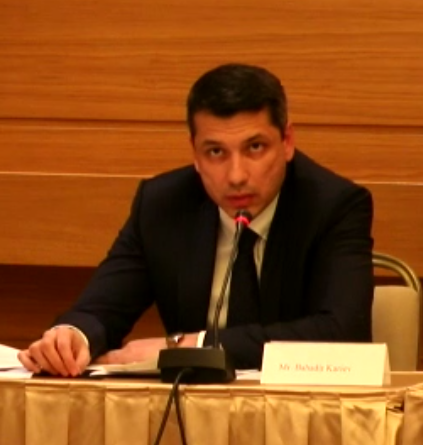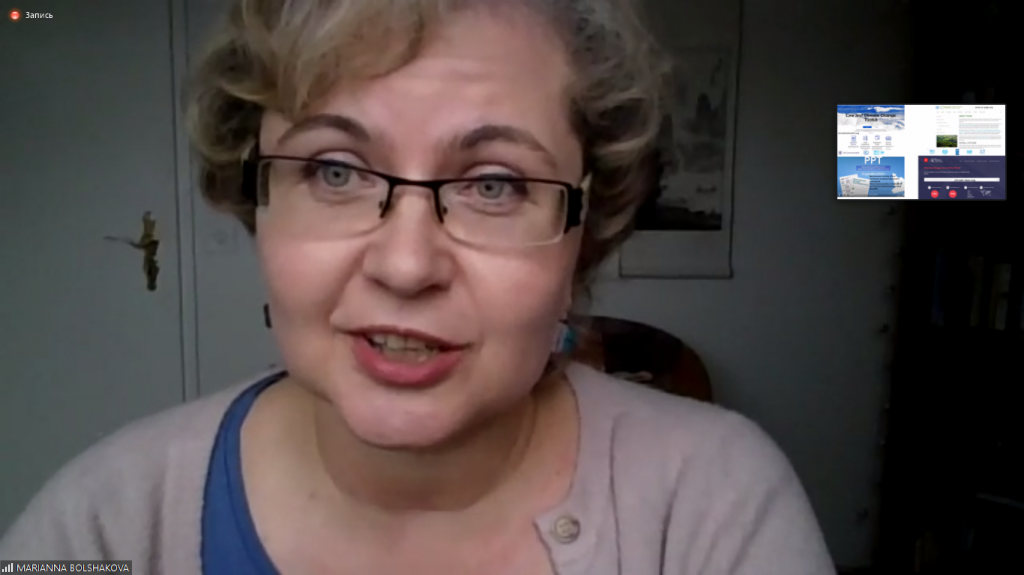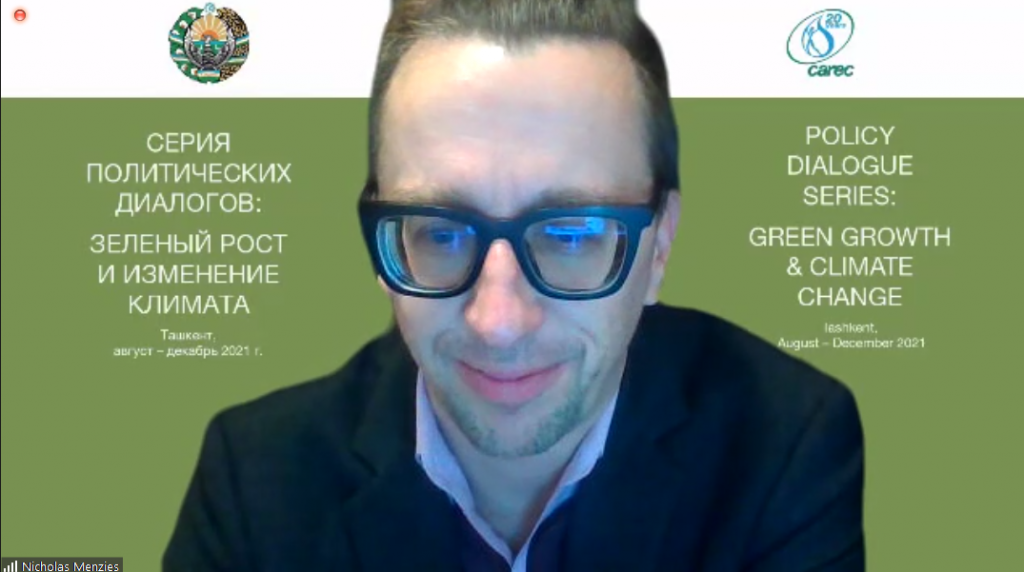TASHKENT, December 15, 2021 – The Ministry of Economic Development and Poverty Reduction of Uzbekistan, the World Bank, and the Regional Environmental Centre for Central Asia (CAREC) hosted a roundtable to discuss favorable policy environment to accelerate green growth in Uzbekistan.
This roundtable was the ninth in a series of 11 public policy dialogues on Green Growth and Climate Change in Uzbekistan that are held in Tashkent from August 2021 through January 2022.
The policy dialogues provide a forum for public discussion on the country’s progress in implementing its climate change commitments and accelerating the transition to a green economy, which are outlined in the Government’s Climate Change Strategy 2021–2023 and Strategy on Transition to a Green Economy 2019–2030.
The round table brought together MPs from the Legislative Chamber of the Oliy Majlis, and officials representing the Ministry of Economic Development and Poverty Reduction, Ministry of Justice, Uzbekistan Hydrometeorological Service, State Committee for Ecology and Environmental Protection, as well as national and international experts.
The participants discussed legislative policy reforms needed to effectively address climate change; progress made in establishing and implementing an emissions monitoring, reporting and verification system; and strengthening of institutions and skills for effective climate policy response.

“I believe this event will allow discussing the statuses of legislative aspects of reforms on green growth and climate change in Uzbekistan, to access to the international experience in legislative reforms, policy and capacity building and the implications of human capital development to strengthen the policy development process on climate change,” said Bahadir Kariev, Head of the Department for Supporting the Development of Green Technologies of the Ministry of Economic Development and Poverty Reduction of the Republic of Uzbekistan.

“Solid legal underpinning is absolutely essential for climate action and sustainable economic transformation,” noted Marianna Bolshakova, Regional Coordinator for Law and Governance at the Europe Office of the UN Environment Programme. “It is simply the most practical approach that provides predictability for investors, helps build institutional coordination and allows for more effective and meaning budget allocations.”

“To take effective action on climate change, countries need to establish a credible commitment to ambitious action over the long term. Such a commitment signals to the private sector, households, and all levels of government that investments in the climate transition and resilience are worthwhile. Climate change framework legislation can help establish long-term targets and create an architecture for implementation and an accountability system,” said Nicholas Menzies, Senior Governance Specialist in the Governance Global Practice at the World Bank.
More than 30 countries and the EU have now adopted such legislation to support them achieve their climate goals. The roundtable participants discussed how international experience can guide other countries looking to benefit from climate change framework legislation.
The policy dialogue roundtables, among other issues, focus on, supporting the Government of Uzbekistan in building green, just, and low-carbon industry and economy; developing climate resilience; mobilizing green finance; and helping elaborate a roadmap for accelerating the transition towards green growth and climate resilience.
For more information, please visit an event page on the World Bank website: https://www.worldbank.org/en/events/2021/09/21/uzbekistan-policy-dialogues-green-growth-and-climate-change